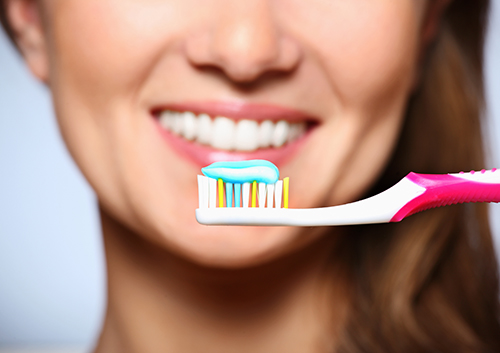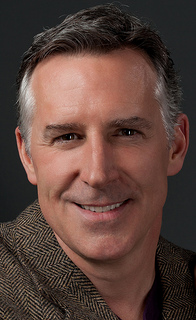Cleaning Your Teeth—Time for a Refresher Course!
September 21st, 2022

Let’s face it, by now, brushing our teeth is something we pretty much do on auto-pilot. A quick brush after breakfast, a minute or so at night, floss when we think of it. Done. But take a few minutes to review these cleaning tips, and see if a few small adjustments to your routine could make all the difference at your next checkup at our Fairview Heights, IL office.
- Tools
Some of us prefer brushing with a manual brush. Some like the electric brush for ease and comfort. Whichever form of brush you choose, be sure that it fits comfortably in your mouth, reaches everywhere it needs to, and has a handle that is easy to grip. There are many bristle options available, so if you are an energetic brusher, or if you have sensitive gums, try a soft bristled brush for gentler brushing.
If you haven’t been exploring the floss aisle lately, there are now many varieties available to suit your particular needs. Besides the traditional floss, there are coated flosses for easy gliding between teeth that fit closely together, dental tape-style flosses to fit teeth with wider spacing, and even flosses designed just for braces that thread between the wires and brackets. Talk to Drs. Rottschalk, Acker, and Froidcoeur at your next cleaning for product suggestions if you think there’s an easier, more comfortable option out there for you.
- Technique
With proper technique, any toothbrush and floss you choose will do a fine job of removing plaque.
Brushing? There’s a tried and true method for success. Place the toothbrush at a 45° angle at the gum line. Be sure to brush the outside, inside, and chewing surface of each tooth thoroughly. Remember the expression, “Massage, don’t scrub.” Over-vigorous brushing can actually irritate gum tissue and damage enamel. An electric toothbrush should provide a continuous brushing motion without needing any pressure from the brusher. This might be the model for you if you have a too-vigorous approach to brushing, or sensitive teeth and gums. If you like your manual brush, again, give a soft-bristled brush a try!
As for flossing? That harmless-looking little string can cause gum damage if used too forcefully. You can accomplish the placement and cleaning power you need by easing the floss down to the gumline and flossing with gentle pressure against the tooth surface. If you have any questions about technique, remember—we are always happy to let you know the best cleaning methods for your specific needs.
- Timing
Of course, the best tools and the best technique in the world won’t be effective unless you put the right amount of time into brushing and flossing.
The standard rule is two minutes of brushing in the morning and two minutes at night. If you wear braces or have other special circumstances, we might recommend brushing after every meal. And if you brush after breakfast, give your teeth half an hour or so to remineralize. This natural process uses the calcium and phosphate ions in your saliva to strengthen tooth enamel after it’s been exposed to any acidic foods in your breakfast.
Thorough flossing can be accomplished in a few minutes, and might be needed only once a day. But again, depending on your individual needs, we might have other recommendations. Let’s review what works for you at your next visit—we can tailor suggestions for a brushing routine to your unique needs.
It’s a great idea to review your brushing habits periodically to make sure you are getting the most out of those minutes you spend cleaning your teeth. There won’t be a test at the end of this review, and you won’t get a gratifying grade or a gold star. What you will get is much more important—better checkups, fewer cavities, and healthy teeth and gums. Happy cleaning!
Five Clues That It’s Time to Replace Your Toothbrush
September 14th, 2022

Your dashboard lights up when you need an oil change. Your smoke detector beeps when you need to switch out the batteries. But when it’s time to replace your toothbrush, you’re on your own. Luckily, there are several not-too-subtle clues that you should be shopping for a new model.
- Fraying
Is your toothbrush looking a bit scruffy? Do those once orderly bristles look like they have the toothbrush equivalent of bed head? Have some bristles vanished altogether? Time to retire that toothbrush. Once the bristles are frayed, you just can’t reach plaque as effectively, especially where it likes to hide between the teeth.
Are you prematurely fraying? You could be brushing too hard. Overbrushing can damage delicate gum tissue and cause wear and tear to tooth enamel. If you find your brush fraying after only a few weeks of use, you might be using too much force. Remember, plaque is a sticky film, but it’s a soft sticky film. Ask us for advice on just how hard you need—or don’t need—to brush.
- Odor
This one really goes without saying—no one wants an aromatic toothbrush! How to make sure your toothbrush is fresh and clean?
Always rinse carefully after you brush. This will get rid of any toothpaste, bits of food, or other particles left on your brush.
Let your toothbrush air dry. It might seem more hygienic to keep your brush covered in a bathroom setting, but a closed, moist container is a perfect breeding ground for germs. Don’t let them make a home in your bristles!
- Illness
A cold or a bacterial infection (like strep throat) is no fun. But now that you’re feeling better, it might be time to throw out your toothbrush. The chances of re-infection are very low, unless your immune system is compromised, but this is a perfect opportunity to replace your brush with a fresh, germ-free model.
And if you share your toothbrush, or if you store it right next to a loved one’s or family member’s (which you really shouldn’t do, for this very reason), germs get shared, too. Quarantine your brush while you’re ill, and replace it once you’re out and about.
- Discomfort
Bigger isn’t necessarily better. A brush with a head that’s too big won’t allow you to get into those small spaces in your mouth where plaque likes to collect.
And harder doesn’t mean more effective. A brush with hard bristles can cause damage to your gums and enamel. We almost always recommend soft-bristled brushes for this very reason.
There are so many styles of brush out there, you’re bound to find the perfect fit with a little trial and error. Or ask Drs. Rottschalk, Acker, and Froidcoeur for suggestions the next time you’re at our Fairview Heights, IL office for a cleaning!
- The “Best By” Date Has Passed
Because of its durable construction, your toothbrush can last a long, long time. But no matter how comfortable and effective your toothbrush is right now, it was never meant to go through life with you. Bristles break down over a period of months, and just don’t clean as effectively. Your brush should be changed every three months, and this includes changing the head on your electric toothbrush.
Unfortunately, you don’t have a flashing light or annoying beep to remind you when it’s time to change brushes, so you’ll have to devise your own reminders. Reminder apps, calendar notes, the first day of a new season—use whatever works best for you.
Don’t ignore the clues your toothbrush is leaving you. Replacing your brush whenever it’s necessary helps guarantee that the time you spend cleaning your teeth and gums will lead to confident, healthy smiles. Case closed!
Back to School? Remember Your Dental Homework!
September 7th, 2022

It’s a busy time of year. Book lists! Supplies! New clothes! (How did they outgrow those shoes already?) And while you’re preparing your family’s list of back-to-school necessities, here are a few essential reminders to help your child begin the school year with a healthy smile.
- Review
It never hurts to review the basics before the start of the school year, and that holds true for dental care as well! Make sure your child is brushing two minutes twice a day, and using floss or another interdental tool to clean between the teeth. If his toothbrush has been in use since the end of the last school year, it’s probably time to replace it. Bristles are at their best for about three months—after that, they become frayed and worn, and can’t remove plaque as effectively.
- School Supplies for Braces Wearers
If your child is going to school with braces for the first time, send her off with the tools she needs. A travel-sized toothbrush and tube of toothpaste are perfect for a quick brushing after lunch, while dental floss and a threader or dental picks will take care of any after-lunch particles lurking in brackets and wires. Orthodontic wax is a great product to have on hand if a wire or bracket is causing irritation. If your child uses clear aligners or a retainer, make sure a protective case is always close by, ready to use every time the appliance is removed. And it’s a good idea to include the number of your dentist and orthodontist in her contacts in case of emergency.
- Exams
If your school requires a dental exam before the start of classes, be sure to make your appointment at our Fairview Heights, IL office now! Regular checkups with Drs. Rottschalk, Acker, and Froidcoeur are vital for preventing small problems from becoming bigger ones, and a professional cleaning will remove the plaque even careful brushing can miss.
A positive, confident start can set the tone for the academic year, so your homework might include monitoring summer reading, providing required supplies, and making sure your child is well-rested and ready to go. You can also help your child to a positive, confident start by monitoring brushing habits, providing the necessary tools for appliance-wearers, and making sure your child is up-to-date with dental exams and cleanings. Because entering the classroom with a beaming, healthy smile—that’s an A+ way to begin the school year!
Dental Veneers
August 31st, 2022

Are you looking to improve the appearance of your front teeth? Dental veneers are widely used to improve the appearance of front teeth and are a much more conservative option than a full dental crown. Veneers can be used to improve the appearance of staining, large gaps, large fillings, chipped teeth, or overall shape. Veneers are a thin covering over the front and biting end of the tooth used to restore the beauty of a smile. Over the years we have helped many patients who opted for veneers and now have the confidence to smile again.
Dental veneers are made in a lab from long-lasting porcelain materials. The shade can be chosen to a desirable color to whiten the appearance of your smile. Dental veneers are usually placed on the anterior, or front teeth, where the chewing forces are not as hard as the back teeth. The process of placing veneers is relatively easy requiring only two dental appointments. In some cases, only one appointment is needed. It depends on the fabrication process.
The first appointment is to “prep” the teeth and take an impression to be sent to a lab to fabricate the veneers. Veneers are fairly conservative in the preparation as it requires a small amount of space to be created on the face (front), bottom, and sides of each tooth to allow space for the veneer to be placed and look natural. You will leave the office with temporary veneers for the next week or two while the permanent veneers are being made.
The second appointment is to place the veneers and make minor adjustments if needed. What a difference it makes in the appearance of the teeth! If you’re interested in learning more, give Drs. Rottschalk, Acker, and Froidcoeur a call today!





